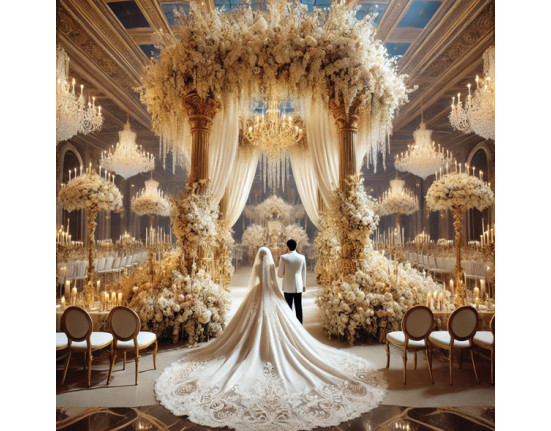When I first wrote about The
Wedding Circus, I thought the conversation might spark reflection – maybe even
a small change. But here we are again, still dancing to the same tune,
pretending not to see what’s happening behind the glitter. Because behind every
carefully staged «perfect wedding» lies a quieter story – one of exhaustion, silent
debt, and fragile pride.
We’ve built an industry around illusion, where the music plays louder than our conscience and the flowers bloom over our financial reality. It’s time to pull back the curtain on what this spectacle truly costs – not in dignity, but in peace, in unity, and in meaning.
I’ve
said it before, but it bears repeating: the cost per chair at a wedding now
rises faster than the price of gold. At least gold can fluctuate – the chair
price only knows one direction: up. Meanwhile, the portions get smaller, and
honestly, who can finish all that food anyway? We convince ourselves that by
inviting hundreds of guests, the wedding will be more “fun,” more “hype,” and
that people will talk about it for years. But what we fail to realize – or
perhaps choose to ignore – is that the guests won’t cover those seats. You’ll
spend more than you’ll ever get back, and then you’ll spend again when you have
to attend their celebrations and give gifts that match “market value.” It’s a never-ending loop of financial
and emotional exhaustion.
Is this
the environment we’re creating for our children – one where weddings mean debt,
competition, and performance anxiety? Is that really why we worked like horses
all our lives – so people can complain that something was “missing” at the
party?
If
someone can genuinely afford a lavish event, that’s their right. But my message
is to the majority – the people trying to imitate lifestyles they cannot
afford. We’ve become addicted to appearances. As Rabbi Jonathan Sacks wisely said, “A consumer society encourages us
to spend money we don’t have, on products we don’t need, for a happiness that
won’t last.” The temporary excitement fades, but the debt and pressure
remain. We are chasing moments of noise
instead of building a lifetime of meaning.
And
then there’s the tradition that made me laugh and cringe at the same time – people
throwing money at weddings. I recently saw a post on Facebook about guests
tossing cash toward the couple or their parents – only for that money to end up
in the musician’s hands. Why? Who invented that rule? Back in Uzbekistan, I
remember that custom existed, but there were no lavish flower arrangements, no
six photographers following the bride’s every blink.
Here,
every vendor – from the musician to the florist – rightfully charges for their
services. So if we must “throw money,” maybe it’s time to be fair and divide it
evenly between everyone who made the event happen – the photographer,
videographer, waiters, and even the florist. After all, as Rabbi Sacks beautifully reminded us, “Blessings are not measured by
how much we own or earn or spend or possess, but by how much we share.”
So maybe it’s time to stop agreeing
and start acting. Not by creating more illusions at the next wedding, but by
protecting what truly matters – your peace, your health, your family. Stop putting a bandage over the
same wound and pretending it’s healed. It’s time to actually heal it – before
the next generation mistakes performance for love.





















